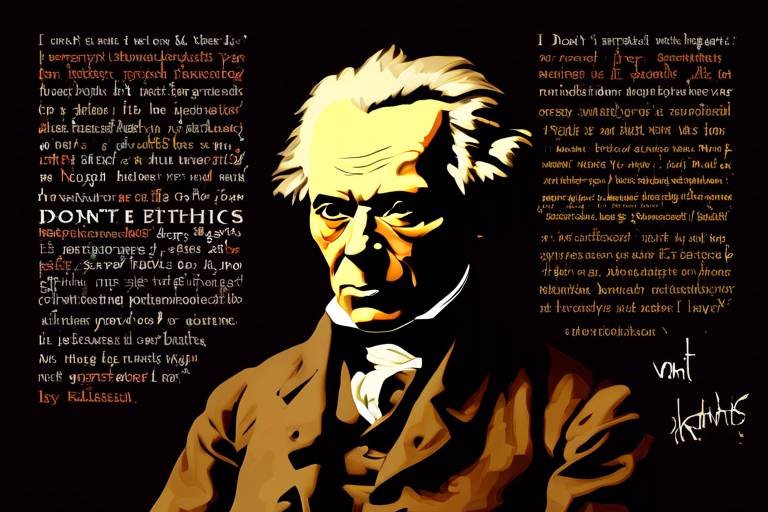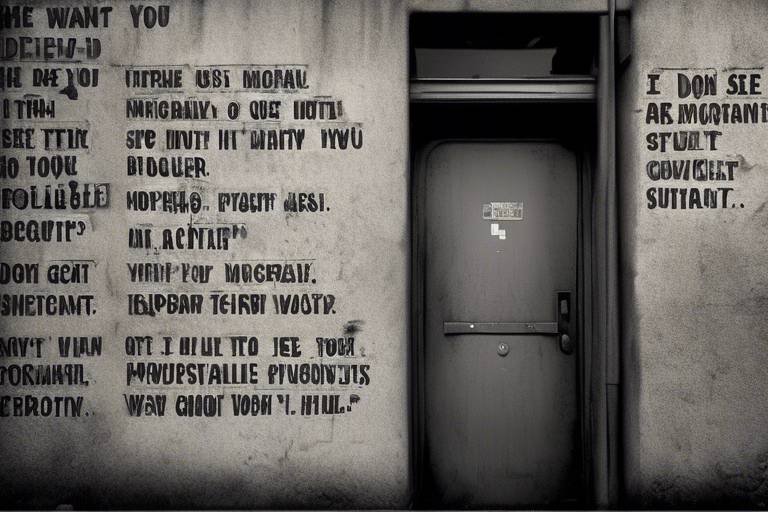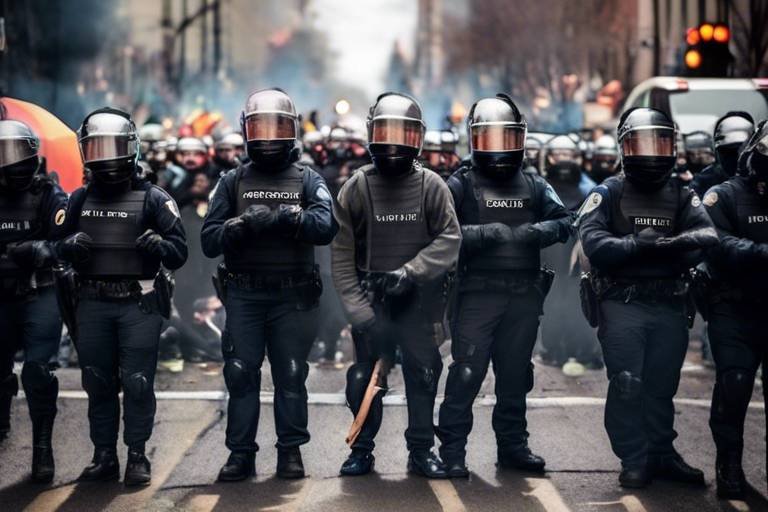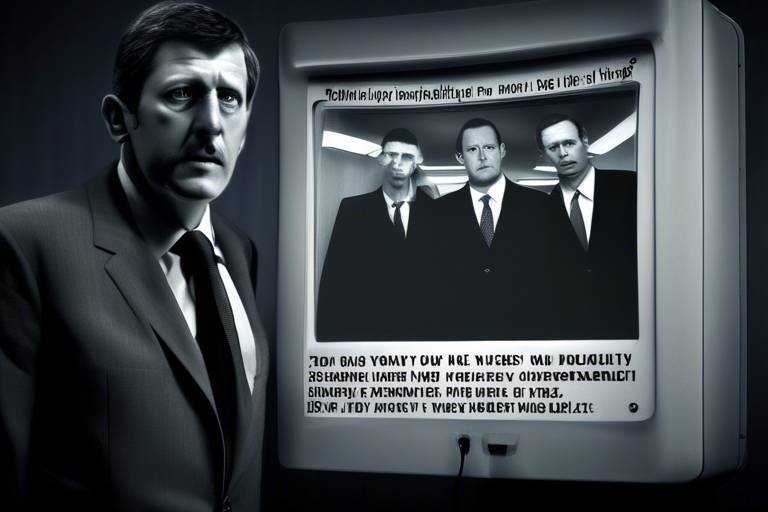The Philosophical Musings on the Morality of War
War has been a part of human history for centuries, shaping nations and altering the course of humanity. But what is the moral justification for war? This question has puzzled philosophers, ethicists, and everyday people alike. As we delve into the complex ethical implications of war, we'll explore various philosophical lenses that shed light on the justifications, consequences, and moral dilemmas faced by individuals and societies in times of conflict.
At the heart of this discussion lies the Just War Theory, a framework that attempts to delineate when it is acceptable to go to war and how to conduct it ethically. This theory asserts that war can only be justified under certain conditions, such as self-defense, protection of innocent life, or the restoration of peace. However, the criteria for a just war are not universally agreed upon, leading to heated debates about the morality of various conflicts throughout history.
On the other end of the spectrum lies pacifism, a moral stance that vehemently opposes war in any form. Supporters of pacifism argue that violence only begets more violence and that true justice can only be achieved through non-violent means. This perspective raises important questions about the role of conscience in moral decision-making. How do individuals reconcile their duties as citizens with their personal ethical beliefs? The tension between duty and personal conviction can be particularly evident in wartime, where individuals may feel compelled to fight for their country while grappling with their own moral compass.
The Just War Theory provides a structured approach to evaluating the morality of war. It is built upon two main principles: jus ad bellum (the right to go to war) and jus in bello (the right conduct in war). These principles set forth criteria that must be met to justify the initiation of war and the ethical conduct during warfare. Some of these criteria include:
- Just Cause: The reason for going to war must be just and cannot be motivated by self-gain.
- Right Intention: The intention behind the war should be to achieve a good outcome, such as peace or justice.
- Proportionality: The anticipated benefits of waging war must outweigh the expected harms.
- Last Resort: All non-violent options must be exhausted before resorting to armed conflict.
While these criteria provide a guideline, the application of Just War Theory is often fraught with complexities. For instance, how do we measure proportionality? What constitutes a 'just cause'? These questions can lead to significant ethical dilemmas, forcing individuals to confront their beliefs about right and wrong in the context of war.
Pacifism challenges the very notion of war, advocating for non-violence as the ultimate solution to conflict. Philosophers like Mahatma Gandhi and Martin Luther King Jr. have championed this view, arguing that love and understanding can triumph over hatred and violence. However, the implications of pacifism are profound. In a world where aggression exists, can pacifism truly be effective? This question is particularly relevant when considering the historical context of wars fought for liberation or justice.
In times of war, the role of personal conscience becomes increasingly significant. Individuals often find themselves at a crossroads, torn between their duty to serve and their moral beliefs. This internal struggle can lead to acts of conscientious objection, where individuals refuse to participate in war due to their ethical convictions. Historical examples abound, showcasing how personal conscience has influenced decisions during wartime, often at great personal cost.
Throughout history, there have been notable figures who prioritized their conscience over societal expectations. For example, during World War II, many individuals, including soldiers and civilians, faced the moral dilemma of participating in a conflict they believed to be unjust. Their choices, whether to fight or resist, had lasting impacts on societal actions and policies, ultimately shaping the moral landscape of their time.
However, adhering to one’s conscience is not without its challenges. Individuals may face immense societal pressure to conform, fear of repercussions, and the complexities of moral ambiguity. In wartime, the stakes are high, and the struggle to maintain one’s ethical beliefs can be daunting. This tension raises critical questions about the nature of morality and the responsibilities of individuals in a collective conflict.
The philosophical debate surrounding war ethics often centers on two major frameworks: consequentialism and deontology. Consequentialists evaluate the morality of actions based on their outcomes, arguing that if the results are beneficial, then the actions taken are justified. Conversely, deontologists adhere to a set of rules or duties that dictate moral behavior, regardless of the outcomes. This dichotomy presents a rich ground for exploring how we perceive the morality of war and the actions taken within it.
War does not merely affect soldiers on the battlefield; it ripples through society, altering values, norms, and ethics. The long-term consequences of conflict can reshape collective morality, leading to shifts in how societies view justice, peace, and human rights. The psychological impact on individuals, from veterans to civilians, can create lasting scars that influence future generations.
After conflicts subside, societies often engage in deep philosophical reflections. These post-war analyses can lead to significant reassessments of moral frameworks and the lessons learned from warfare. Societies may grapple with their actions during the conflict, seeking to understand the moral implications and striving to ensure that history does not repeat itself.
Finally, the relationship between war and human rights cannot be overlooked. Even amidst conflict, nations and individuals have a moral obligation to uphold human dignity. This obligation raises profound questions about the ethical responsibilities of combatants and the international community in protecting human rights during warfare.
- What is Just War Theory? - A framework that outlines the moral justifications for engaging in war and the ethical conduct during warfare.
- What are the main principles of pacifism? - Pacifism advocates for non-violence and seeks to resolve conflicts through peaceful means.
- How does personal conscience impact decisions during war? - Individuals may struggle between their duty to serve and their ethical beliefs, leading to acts of conscientious objection.
- What is the difference between consequentialism and deontology? - Consequentialism focuses on the outcomes of actions, while deontology emphasizes adherence to moral rules or duties.
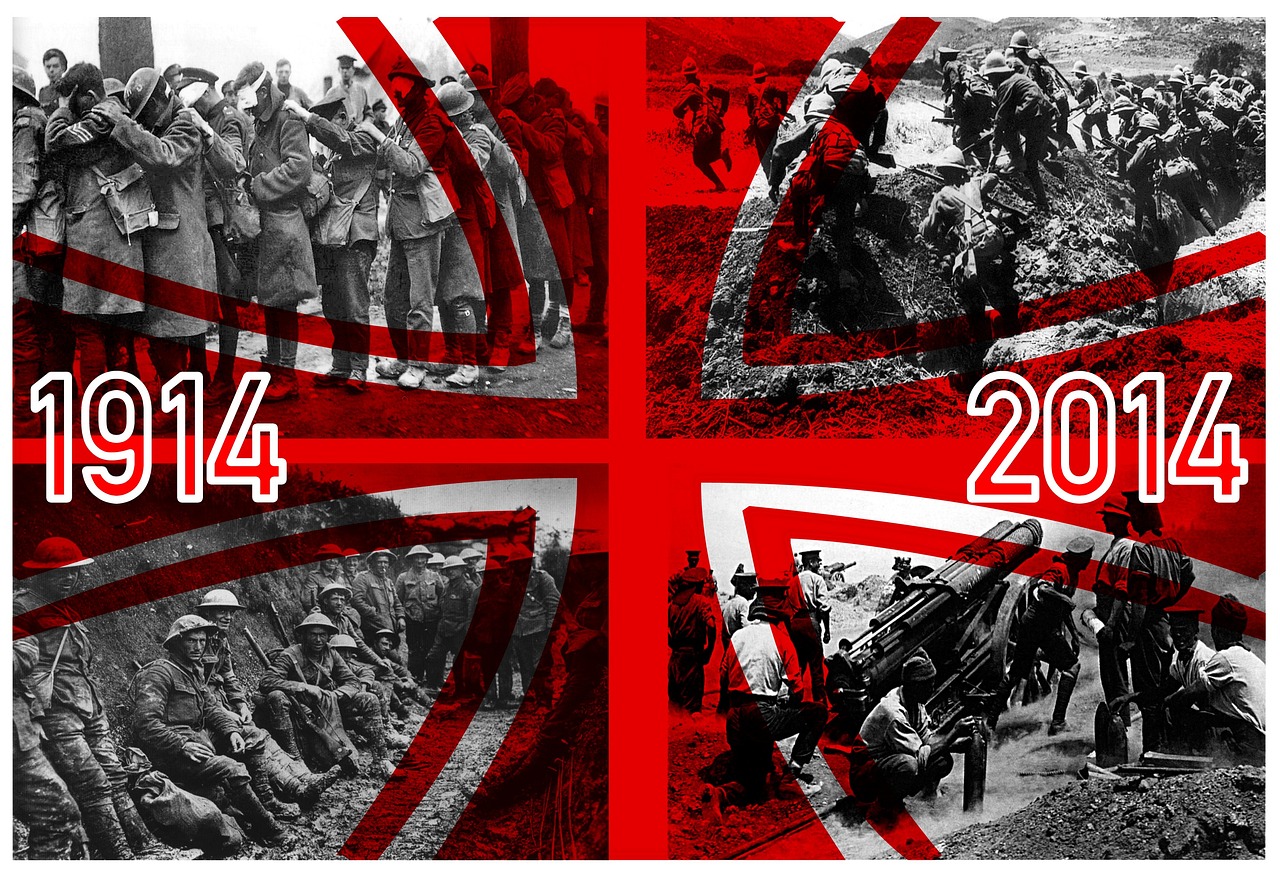
The Just War Theory
The Just War Theory serves as a fascinating framework for understanding the ethical implications of warfare. It provides a set of criteria that help determine when it is morally acceptable to go to war (jus ad bellum) and how to conduct warfare ethically (jus in bello). Imagine trying to navigate a complex maze of moral dilemmas; this theory acts as a guiding light, illuminating the paths that lead to justified conflict versus those that plunge into the abyss of immorality.
At its core, the Just War Theory seeks to balance the harsh realities of conflict with the ideals of morality and justice. It raises pivotal questions: Can war ever be justified? If so, under what circumstances? The theory is often attributed to philosophers such as Augustine of Hippo and Thomas Aquinas, who laid the groundwork for these moral considerations. They argued that war, while inherently tragic, could be justified if it meets specific criteria, which include:
- Just Cause: There must be a legitimate reason for going to war, such as self-defense or protecting innocent lives.
- Legitimate Authority: Only duly constituted authorities can declare a war; this prevents rogue actions that could lead to chaos.
- Right Intention: The intention behind the war must be good, aiming for peace and justice rather than power or greed.
- Last Resort: All other means of resolving the conflict must be exhausted before resorting to armed conflict.
- Proportionality: The anticipated benefits of waging war must outweigh the expected harms.
These criteria create a moral framework that seeks to ensure that warfare is not merely a tool for political gain or revenge. Instead, it emphasizes that war should be a last resort, a necessary evil undertaken only when all other avenues have been explored. However, the application of the Just War Theory is not without its challenges. The subjective nature of terms like "just cause" and "right intention" can lead to differing interpretations, often influenced by cultural, social, and political contexts.
Moreover, the ethical conduct of war (jus in bello) is equally critical. This aspect of the theory dictates that even in war, combatants must adhere to certain moral standards. The principles of discrimination and proportionality are key here, ensuring that combatants distinguish between military targets and non-combatants, and that the force used is proportional to the threat faced. This raises another layer of complexity: how do we ensure that these principles are upheld in the chaos of battle?
In summary, the Just War Theory provides a vital lens through which to examine the morality of war. It challenges us to think critically about our justifications for conflict and the ethical implications of our actions during wartime. As we delve deeper into the philosophy of war, we must continuously ask ourselves: Are we upholding the principles of justice and morality, or are we losing ourselves in the fog of combat?

The Ethics of Pacifism
The ethics of pacifism present a profound and compelling argument against the use of violence in resolving conflicts. At its core, pacifism is not just a rejection of war; it embodies a philosophical commitment to non-violence as a moral principle. Imagine a world where disagreements are settled through dialogue and understanding rather than through the devastating consequences of armed conflict. This idealistic vision is what pacifists strive for, believing that every individual has the potential to contribute to a more peaceful society.
One of the key arguments in favor of pacifism is the intrinsic value of human life. Pacifists contend that every life is sacred, and that resorting to violence undermines this fundamental principle. When we choose to engage in war, we often disregard the humanity of our opponents, reducing them to mere obstacles in our path. This dehumanization not only justifies violence but also perpetuates a cycle of hatred and revenge. As Martin Luther King Jr. famously stated, “Darkness cannot drive out darkness; only light can do that. Hate cannot drive out hate; only love can do that.”
Moreover, the ethical stance of pacifism extends beyond mere avoidance of violence; it encourages active engagement in promoting peace. This can take many forms, including advocacy, education, and community-building. Pacifists often engage in non-violent resistance, using their voices and actions to challenge injustices without resorting to aggression. For instance, movements like Gandhi's Satyagraha illustrate how non-violent methods can effectively confront oppressive systems and bring about social change. The success of such movements highlights that non-violence can be a powerful tool for achieving justice.
However, the path of pacifism is not without its challenges. Critics often argue that pacifism can lead to passivity in the face of aggression. They question whether it is ethical to stand by while atrocities occur, suggesting that sometimes, force may be necessary to protect the innocent. This dilemma poses a significant challenge for pacifists, who must reconcile their commitment to non-violence with the harsh realities of a world where violence exists. The question arises: Is it moral to allow harm to occur when one has the power to intervene? This tension between inaction and intervention is a central theme in discussions about the ethics of pacifism.
In addressing these criticisms, many pacifists emphasize the importance of context. They argue that while non-violence is a guiding principle, it does not mean that pacifists are blind to the complexities of moral dilemmas. Instead, they advocate for a nuanced approach that considers the broader implications of actions taken during conflicts. For instance, intervening through diplomatic channels, humanitarian aid, or peaceful protests can be seen as a more ethical response than engaging in warfare. By opting for these methods, individuals can uphold their commitment to peace while actively working to prevent violence.
Ultimately, the ethics of pacifism challenge us to reflect on our values and the societal norms that shape our responses to conflict. It invites us to question whether our actions align with our beliefs about the sanctity of life and the potential for human connection. In a world increasingly fraught with division and hostility, the pacifist perspective serves as a reminder that there is always a choice. As we navigate the complexities of moral decision-making, we must ask ourselves: What kind of world do we want to create?
- What is pacifism? - Pacifism is the belief that violence is unjustifiable and that disputes should be settled through peaceful means.
- How does pacifism relate to war? - Pacifism opposes war and advocates for non-violent solutions to conflicts, emphasizing the value of human life.
- Can pacifism be effective? - Yes, historical examples such as Gandhi's non-violent resistance show that pacifism can lead to significant social and political change.
- What are the criticisms of pacifism? - Critics argue that pacifism can lead to inaction in the face of aggression, questioning the morality of not intervening during injustices.
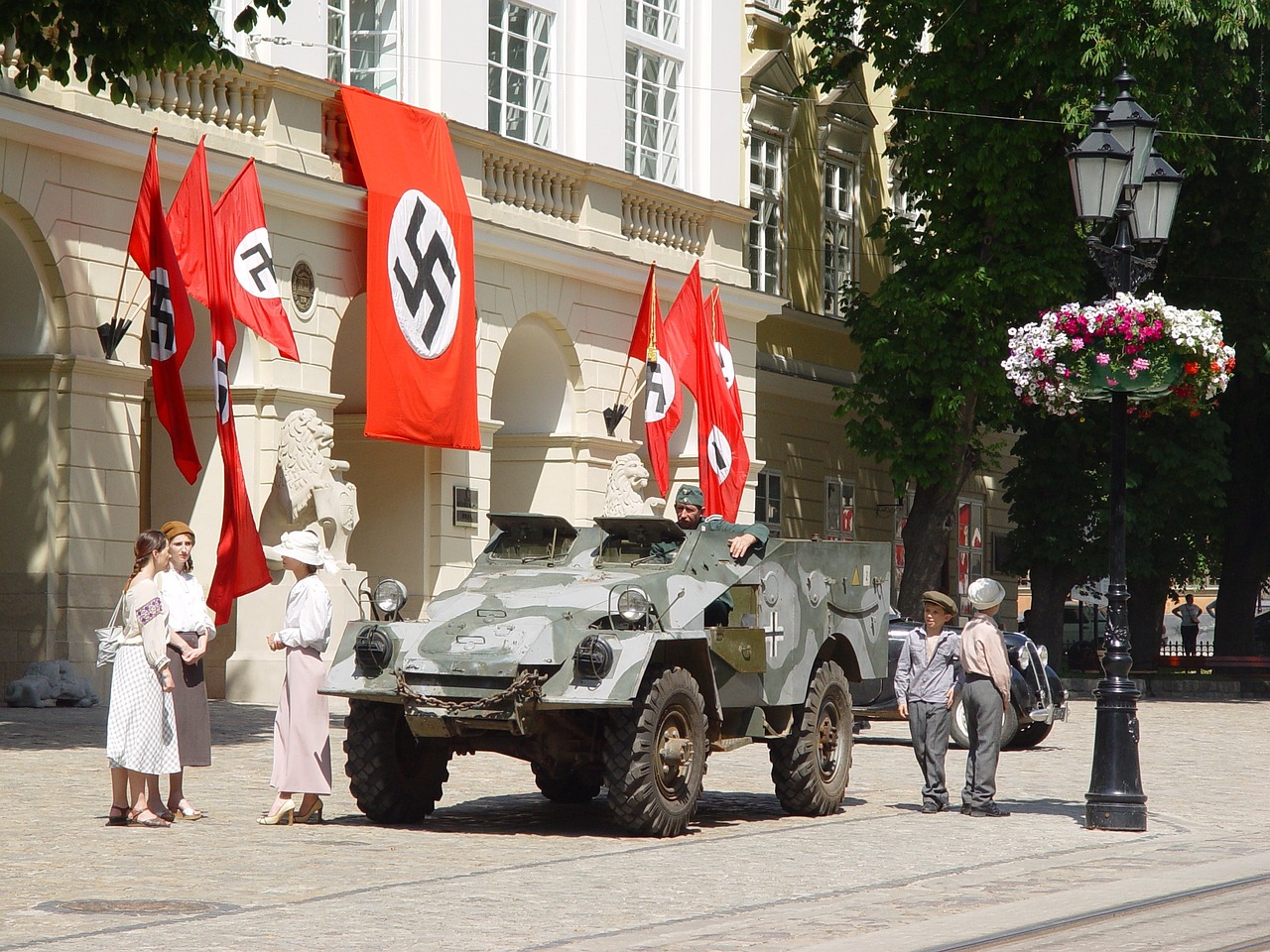
The Role of Conscience
When we think about war, it’s easy to get lost in the chaos, the strategies, and the politics. But at the heart of any conflict lies a deeply personal battle: the struggle of conscience. Conscience acts as our internal compass, guiding us through the murky waters of morality and ethics during tumultuous times. So, what happens when duty clashes with personal beliefs? How do individuals navigate the storm of conflicting values when their country calls for action?
Consider a soldier who is ordered to engage in combat. On one hand, there’s the obligation to serve and protect their nation, a duty that has been ingrained through training and social expectations. On the other hand, there exists a nagging voice within that questions the righteousness of their actions. This tension is not merely a personal dilemma; it resonates on a societal level, affecting how communities perceive and react to warfare. The role of conscience becomes crucial in such scenarios, often leading to profound moral dilemmas.
During wartime, individuals are frequently faced with decisions that challenge their ethical beliefs. For instance, a soldier might wonder: “Is my participation in this conflict justified?” or “What if my actions lead to unnecessary suffering?” These questions highlight the significance of personal conscience, which can be both a source of strength and a burden. The moral weight of such decisions can lead to feelings of guilt, shame, or even valor, depending on the outcomes and personal beliefs.
Moreover, the impact of conscience extends beyond individual soldiers to entire societies. When a significant number of people begin to question the morality of a war, it can spark movements that challenge governmental authority and advocate for peace. This collective questioning can lead to societal shifts, where the moral fabric of a community is re-evaluated in light of the consequences of war. Thus, the role of conscience not only shapes individual actions but also influences the broader ethical landscape.
However, adhering to one’s conscience during wartime is not without its challenges. Many individuals face immense pressure to conform to societal expectations, often leading to a suppression of their moral beliefs. The fear of repercussions—be it social ostracism or legal consequences—can stifle individual voices. In such environments, the struggle between personal ethics and external pressures can create a complex web of moral ambiguity, making it increasingly difficult to navigate the path of righteousness.
In summary, the role of conscience in wartime is a profound and multifaceted issue. It serves as a guiding force for individuals, prompting them to question their actions and the implications of war on humanity. As we reflect on the ethical dilemmas faced during conflict, it’s essential to recognize that conscience is not just a personal matter; it’s a vital part of the collective human experience, shaping both individual lives and societal norms.
- What is the role of conscience in war? Conscience serves as an internal guide that influences individual decisions and ethical considerations during conflict.
- How can societal pressures affect personal conscience? Societal pressures can lead individuals to suppress their moral beliefs, creating a conflict between personal ethics and external expectations.
- Can conscience lead to societal change during wartime? Yes, when a significant number of individuals question the morality of a war, it can spark movements that advocate for peace and challenge governmental authority.
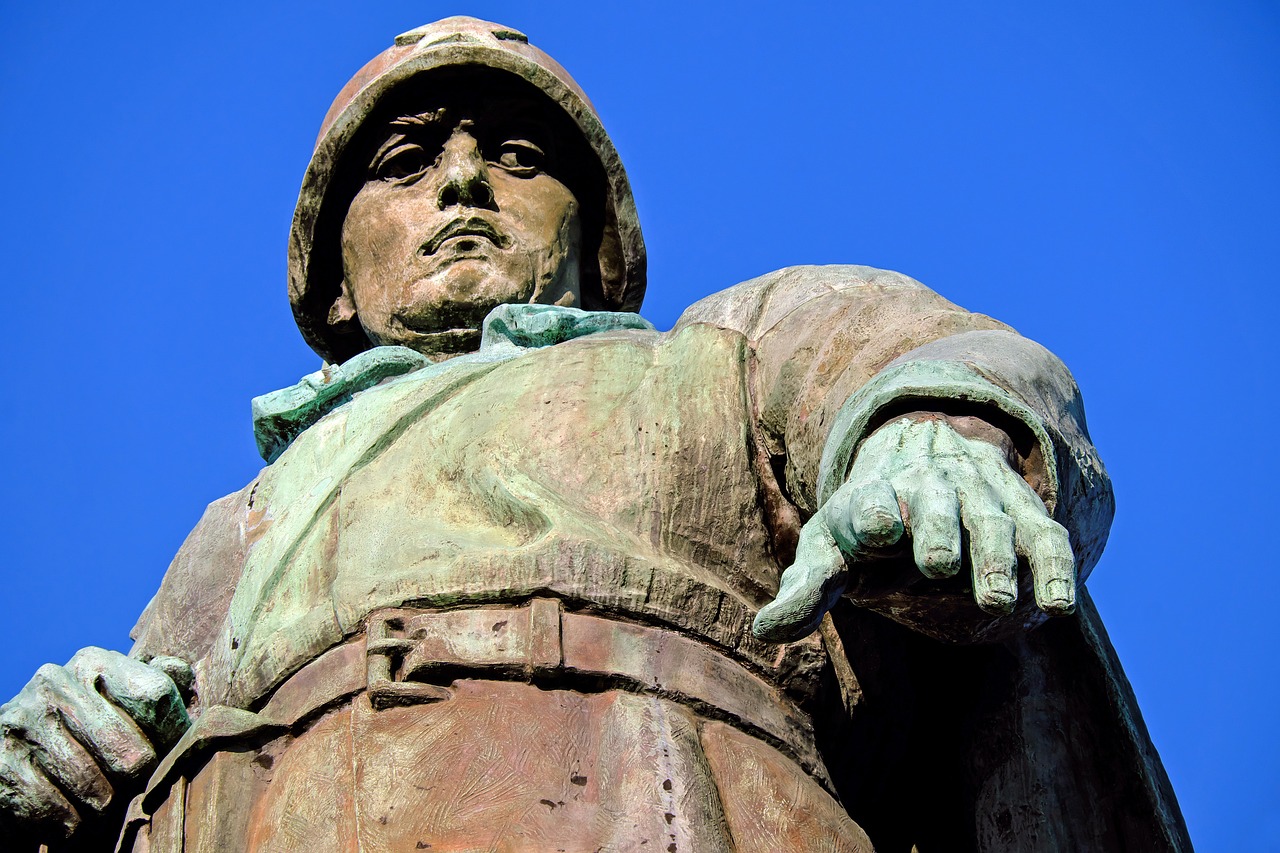
Historical Perspectives on Conscience
Throughout history, the concept of conscience has played a pivotal role in shaping moral decisions during wartime. Individuals often find themselves at a crossroads, torn between their duty to follow orders and their personal ethical beliefs. This tension has led to some of the most compelling stories of moral courage and resistance. Take, for example, the case of Henry David Thoreau, who famously refused to pay taxes in protest against the Mexican-American War. His act of civil disobedience was rooted in a profound sense of conscience, illustrating how one person's moral stance can challenge the status quo.
Similarly, during World War II, many individuals faced the harrowing choice of either complying with oppressive regimes or standing up against them. The actions of figures like Dietrich Bonhoeffer, a German theologian who opposed the Nazi regime, exemplify how personal conscience can lead to significant societal change. Bonhoeffer's commitment to his beliefs ultimately cost him his life, yet his legacy continues to inspire those who grapple with moral dilemmas in times of conflict.
Moreover, the historical perspectives on conscience reveal a pattern: those who have acted according to their ethical beliefs often become catalysts for change. A notable example is the Quakers, who have long held a pacifist stance. Their refusal to participate in wars, even during conflicts like the American Revolution, underscores the strength of individual conscience in shaping societal values. By adhering to their beliefs, they have not only maintained their integrity but have also influenced broader discussions about the morality of war.
However, the journey of conscience is rarely straightforward. Many individuals have faced immense societal pressure to conform, leading to a complex interplay between personal ethics and collective norms. The moral ambiguity present in wartime scenarios often complicates the decisions made by soldiers and civilians alike. For instance, during the Vietnam War, numerous soldiers returned home grappling with the ethical implications of their actions. The My Lai Massacre, where hundreds of unarmed Vietnamese civilians were killed, serves as a grim reminder of how the erosion of conscience can lead to catastrophic consequences.
In light of these historical examples, it becomes evident that the role of conscience is not just a personal battle; it is a societal one. As we reflect on these narratives, we can see that the courage to act in accordance with one's conscience can inspire others to question their own ethical frameworks. This ripple effect can lead to broader societal shifts, challenging prevailing norms and ultimately fostering a culture of moral responsibility.
In conclusion, the historical perspectives on conscience during wartime provide a rich tapestry of human experience, revealing the profound impact of individual ethics on collective actions. These stories remind us that the struggle between duty and conscience is timeless, echoing through the ages as a testament to the enduring power of moral conviction.
- What is the significance of conscience in wartime?
Conscience serves as a guiding force for individuals, helping them navigate the moral dilemmas posed by war and influencing their decisions to either comply with or resist unjust actions. - Can acts of conscience impact societal change?
Yes, acts driven by personal conscience often inspire others and can lead to significant shifts in societal values and norms regarding war and peace. - How have historical figures exemplified the role of conscience in war?
Figures like Henry David Thoreau and Dietrich Bonhoeffer have demonstrated that personal ethics can challenge oppressive systems and inspire movements for justice.
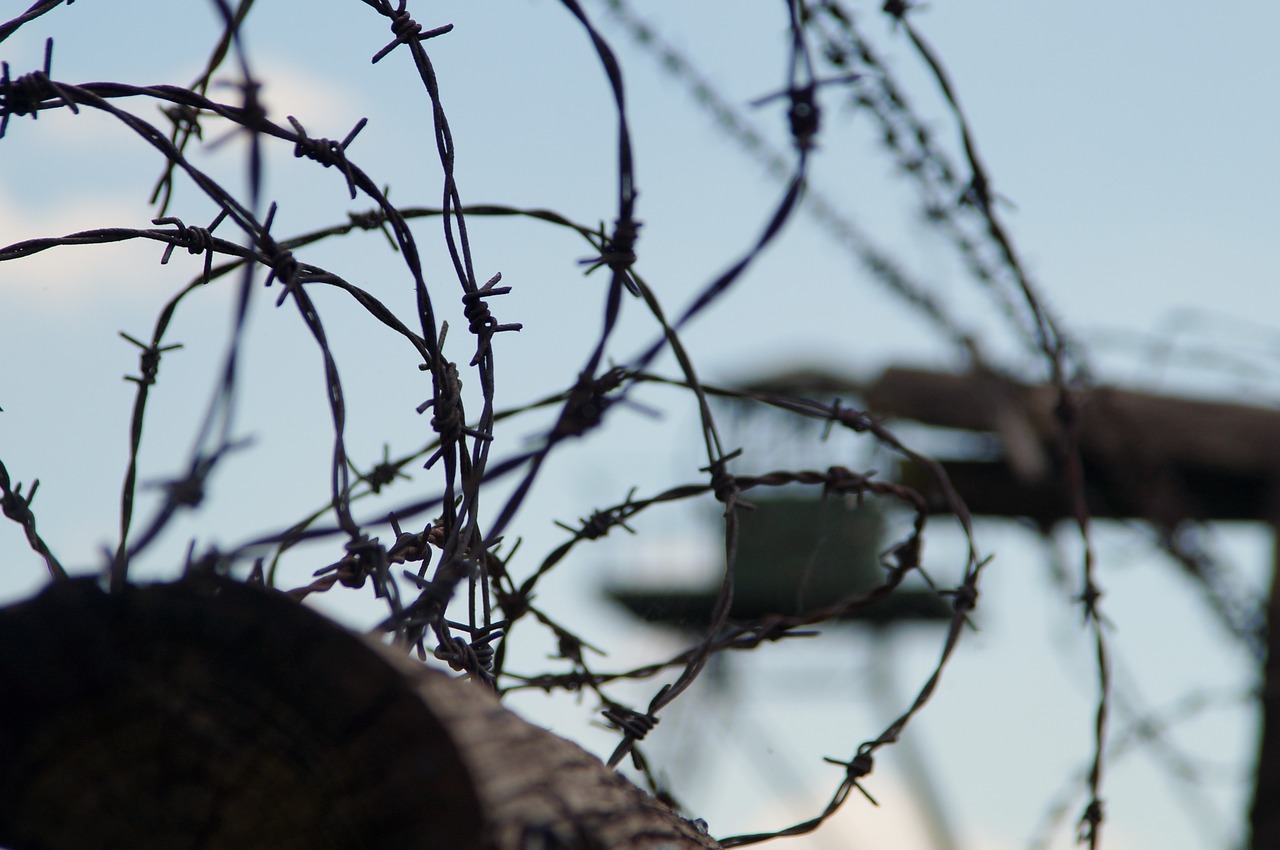
Challenges to Conscience
The journey of adhering to one's conscience during wartime is fraught with challenges that can feel overwhelming. Imagine standing at a crossroads, where one path leads to compliance with orders and the other to a deeply personal moral conviction. For many, this is not just a metaphorical struggle; it is a harsh reality. The pressure to conform can be immense, often stemming from various sources such as societal expectations, the fear of repercussions, and the murky waters of moral ambiguity that war often creates.
One of the most significant challenges is the societal pressure that individuals face. When surrounded by a culture that glorifies military action or demonizes the enemy, it can be incredibly difficult to voice dissenting opinions. This pressure can manifest in numerous ways, from subtle disapproval to outright hostility. Individuals may find themselves questioning their own beliefs, wondering if their stance is a betrayal to their country or comrades. The weight of collective sentiment can be so heavy that it presses down on personal ethics, creating a dissonance that can lead to profound psychological distress.
Moreover, the fear of repercussions cannot be underestimated. In many military contexts, standing against the tide can lead to severe consequences, including ostracism, legal action, or even physical harm. This fear can create a chilling effect, where individuals choose silence over the risk of speaking out. The internal struggle becomes a battle not just of ideals, but of survival. This is where the concept of duty intersects with personal ethics, leaving many to grapple with the question: Is it worth risking everything for a belief that may not be universally shared?
Additionally, the complexities of moral ambiguity in wartime further complicate the adherence to conscience. In the chaos of conflict, the lines between right and wrong can become blurred. What seems justifiable in one moment may appear reprehensible in another. This shifting landscape can lead individuals to question their own moral compass, as they navigate through a labyrinth of conflicting values and loyalties. The realization that one’s actions may contribute to suffering, even when intended to protect, can be a heavy burden to bear.
To illustrate these challenges, consider the following table that summarizes the key obstacles faced by individuals striving to maintain their conscience during war:
| Challenge | Description |
|---|---|
| Societal Pressure | The influence of cultural norms that prioritize conformity over individual ethics. |
| Fear of Repercussions | Potential consequences of dissent, including ostracism or legal action. |
| Moral Ambiguity | The difficulty of discerning right from wrong in complex wartime scenarios. |
In conclusion, the challenges to conscience during wartime are not merely theoretical; they are lived experiences that shape the lives of individuals caught in the crossfire of duty and morality. As we reflect on these struggles, it becomes clear that the pursuit of ethical integrity in the face of overwhelming pressure is a profound act of courage. Individuals must often navigate these turbulent waters alone, seeking solace in their beliefs while wrestling with the reality of their choices.
- What is the primary challenge individuals face regarding their conscience during war?
The primary challenge is the societal pressure to conform, which can lead to internal conflict between personal ethics and group expectations.
- How does fear of repercussions affect decision-making in wartime?
Fear of repercussions can silence dissenting voices and compel individuals to act against their moral beliefs to avoid negative consequences.
- What role does moral ambiguity play in wartime ethics?
Moral ambiguity complicates the ability to make clear ethical decisions, as the context of war can blur the lines between right and wrong.
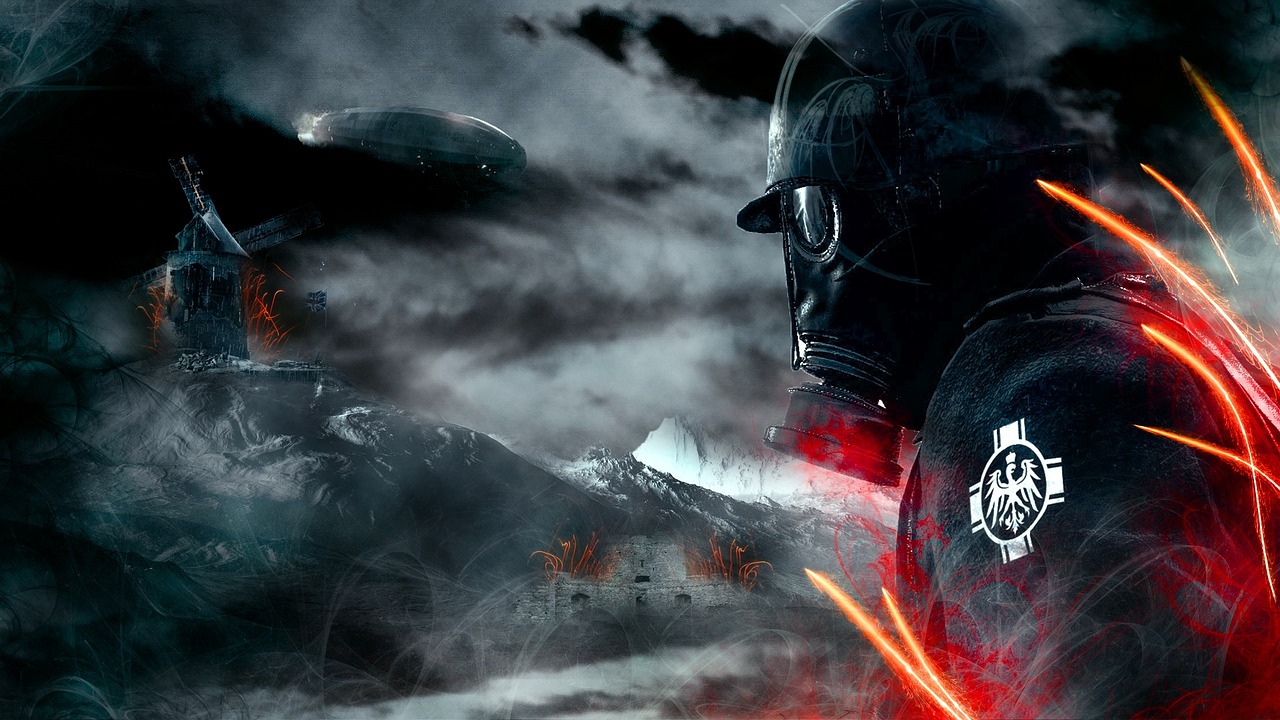
Consequentialism vs. Deontology
When diving into the murky waters of war ethics, two philosophical giants often come to the forefront: Consequentialism and Deontology. These frameworks provide distinct lenses through which we can examine the morality of actions taken during conflict. At its core, consequentialism is all about the outcomes. It posits that the morality of an action is determined solely by its consequences. If a decision leads to a greater good, then it is deemed morally acceptable, even if the means to achieve that end might be questionable. Imagine a soldier who must decide whether to bomb a military target that could also harm civilians. A consequentialist would weigh the potential benefits of defeating an enemy against the tragic loss of innocent lives. If the overall outcome favors a swift end to conflict, they might justify the action.
On the flip side, we have deontology, which argues that the morality of an action is based on whether it adheres to certain rules or duties, regardless of the consequences. Deontologists would argue that intentionally harming civilians is inherently wrong, no matter the potential benefits of winning a war. This perspective emphasizes the importance of moral principles and duties, suggesting that some actions are simply off-limits. For instance, a deontologist might argue that a soldier should never target civilians, as it violates a fundamental ethical duty to protect innocent lives.
The clash between these two philosophies often leads to intense debates, especially in wartime scenarios. Consider the following key differences:
| Aspect | Consequentialism | Deontology |
|---|---|---|
| Moral Focus | Outcomes and results | Rules and duties |
| Example Decision | Bombing a target to end a war quickly | Never harming civilians, regardless of the outcome |
| Key Question | What will produce the best overall results? | What is the right thing to do? |
This philosophical tug-of-war raises critical questions about the nature of morality in warfare. Is it acceptable to sacrifice a few for the greater good? Or should we uphold certain ethical standards even at the cost of victory? The answers are rarely black and white, and individuals often find themselves grappling with the tension between these two approaches. As we navigate the complexities of war, understanding these philosophical underpinnings becomes essential. They not only shape our decisions but also influence the very fabric of our societies in times of crisis.
- What is the main difference between consequentialism and deontology?
Consequentialism focuses on the outcomes of actions, while deontology emphasizes adherence to moral rules and duties regardless of consequences. - Can a person be both a consequentialist and a deontologist?
While they are distinct philosophies, individuals may find themselves applying principles from both frameworks depending on the situation. - How do these philosophies apply to modern warfare?
They guide decision-making processes for military leaders and policymakers, affecting strategies and ethical considerations in conflict.

The Impact of War on Society
War is not merely a clash of weapons; it is a profound event that reverberates through the fabric of society, altering its very essence. When we think of war, we often envision the battlefield, the soldiers, and the immediate destruction. However, the ripple effects of conflict extend far beyond the front lines, affecting societal values, norms, and ethics in ways that are both visible and insidious. The aftermath of war can reshape a community's identity, instilling a sense of resilience or, conversely, a pervasive trauma that lingers for generations.
One of the most significant impacts of war on society is the transformation of collective morality. In times of conflict, ethical boundaries may blur, leading to a shift in what is considered acceptable behavior. For instance, actions that might be deemed reprehensible in peacetime—such as propaganda, surveillance, or even torture—can become justified under the guise of national security. This shift raises critical questions: How do we reconcile our moral compass with the necessity of survival? Can the ends truly justify the means?
The psychological impact of war is another crucial aspect to consider. Soldiers returning from combat often grapple with conditions like PTSD, which not only affects them but also their families and communities. The emotional scars left by war can lead to increased rates of depression, anxiety, and substance abuse, creating a cycle of suffering that can affect entire generations. As communities cope with these challenges, they may find themselves re-evaluating their values and priorities.
Moreover, war can catalyze significant changes in gender roles and societal structures. For example, during World War II, many women entered the workforce to fill roles left vacant by men who went off to fight. This shift not only altered perceptions of gender capabilities but also laid the groundwork for future movements advocating for gender equality. The war acted as a catalyst for social change, challenging traditional norms and opening doors for new opportunities.
In examining the long-term consequences of war, it becomes evident that the impact on societal values is profound. Communities often emerge from conflict with a renewed sense of purpose or, conversely, a fractured identity. The reconciliation process can lead to a re-examination of historical narratives, prompting societies to confront uncomfortable truths about their past. This reflection can be both healing and divisive, as people grapple with the legacies of violence and injustice.
As we consider the intricate tapestry of societal change wrought by war, it’s essential to acknowledge the role of education and dialogue in shaping post-war societies. Engaging in conversations about the ethical implications of conflict can foster understanding and promote healing. Educational initiatives that focus on peacebuilding and conflict resolution can help societies learn from their past, paving the way for a more compassionate and just future.
- What are the primary societal impacts of war?
War can lead to shifts in collective morality, psychological trauma, changes in gender roles, and long-term societal transformations. - How does war affect individual mental health?
Many individuals experience PTSD, depression, and anxiety as a result of their experiences in war, impacting their families and communities. - Can war lead to positive social change?
Yes, historical examples show that war can challenge traditional norms and catalyze movements for equality and justice. - What role does education play in post-war societies?
Education fosters dialogue and understanding, helping societies to learn from their past and promote peacebuilding initiatives.
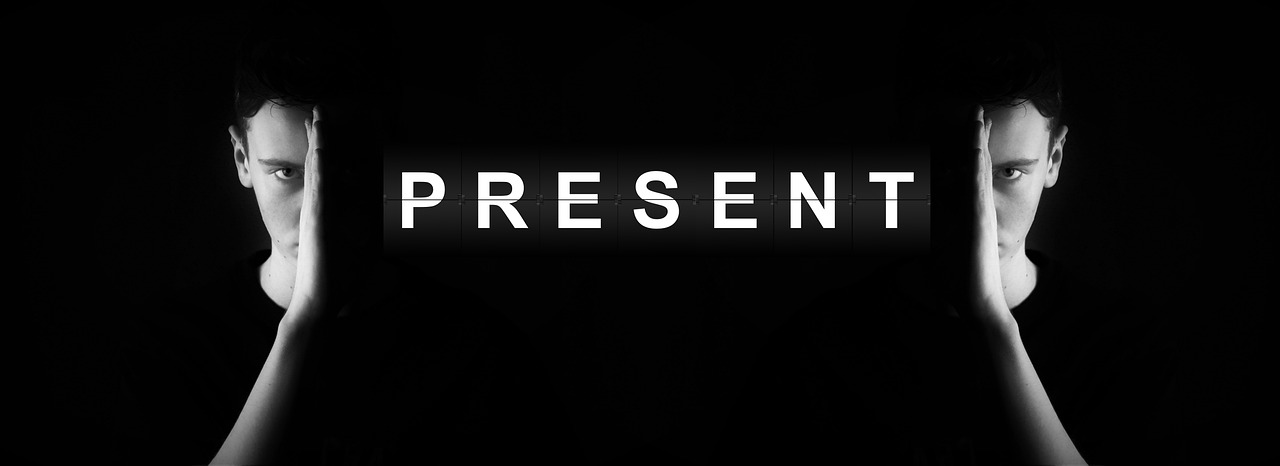
Post-War Reflections
After the smoke clears and the last echoes of gunfire fade, the aftermath of war often leaves a profound impact on individuals and societies alike. It’s in this quiet that we find ourselves grappling with the question: what have we learned? Post-war reflections serve as a crucial moment for introspection, allowing societies to reassess their moral frameworks and draw lessons from the chaos that ensued. It’s a time when the scars of conflict remind us of our shared humanity, challenging us to confront the moral dilemmas that arise during and after warfare.
One of the most significant aspects of post-war reflections is the opportunity for societies to engage in collective healing. The journey to recovery isn’t just about rebuilding infrastructure; it’s also about mending the social fabric that war can tear apart. Communities must face the realities of loss, trauma, and the often complex emotions that arise from conflict. This process can lead to a deeper understanding of what it means to coexist peacefully, fostering a renewed commitment to human rights and ethical governance.
Moreover, these reflections often ignite a critical examination of the decisions that led to war in the first place. Were the justifications valid? Did the ends truly justify the means? Such questions are essential for preventing future conflicts. Societies may create commissions or forums to discuss these issues, allowing for a diverse range of voices to be heard. For instance, in post-apartheid South Africa, the Truth and Reconciliation Commission played a pivotal role in addressing past injustices and fostering national healing.
However, the challenge lies in ensuring that these reflections lead to meaningful change rather than mere rhetoric. It’s easy to say that we will learn from our mistakes, but implementing those lessons can be a daunting task. This is where the role of education becomes paramount. By incorporating lessons from past conflicts into educational curricula, societies can equip future generations with the tools to navigate complex moral landscapes. This ensures that the horrors of war are not forgotten but rather serve as a guide for building a more just and peaceful world.
As we ponder the philosophical implications of war, it's essential to recognize that post-war reflections are not solely about the past; they also shape our future. The moral frameworks we establish in the wake of conflict can influence international relations, humanitarian efforts, and the way we approach global crises. By prioritizing dialogue and understanding, we can work towards a world where war is no longer seen as an inevitable solution but rather as a last resort.
In conclusion, post-war reflections are a vital component of our collective journey towards peace. They challenge us to confront uncomfortable truths, promote healing, and inspire action. As we navigate these reflections, we must remember that the lessons learned must not only be acknowledged but actively integrated into our societal values. Only then can we hope to build a future where the specter of war no longer looms over our shared humanity.
- What are the main objectives of post-war reflections?
The primary objectives include healing societal wounds, reassessing moral frameworks, preventing future conflicts, and promoting education about the consequences of war.
- How can societies ensure that lessons from past wars are not forgotten?
By incorporating these lessons into educational systems, engaging in public discourse, and creating memorials or commissions dedicated to remembrance and reflection.
- What role does individual conscience play in post-war reflections?
Individual conscience can drive personal and collective actions towards reconciliation and justice, influencing how societies remember and learn from their past.

War and Human Rights
When we think about war, it's easy to get lost in the chaos of battle, the strategies, and the political maneuvers. However, at the heart of every conflict lies a profound question: what happens to human rights? In the fog of war, the principles that uphold human dignity often get trampled. It's a troubling paradox—how can nations justify their actions in the name of security while simultaneously violating the very rights they claim to protect?
Throughout history, wars have been fought under various banners, from the pursuit of freedom to the defense of territory. Yet, in the throes of these conflicts, the rights of individuals often become collateral damage. The Geneva Conventions set forth essential guidelines aimed at protecting those who are not participating in hostilities, but the reality is often grim. Civilians, children, and the vulnerable face atrocities that challenge the very essence of what it means to be human.
Consider the impact of war on human rights through the lens of a few key principles:
- Right to Life: In war, this fundamental right is frequently compromised. Bombings, targeted killings, and other violent acts lead to loss of innocent lives, raising questions about accountability.
- Right to Dignity: Warfare can strip individuals of their dignity, subjecting them to torture, abuse, and inhumane treatment. The psychological scars left by such actions can last a lifetime.
- Right to Asylum: As conflicts rage, millions flee their homes seeking refuge. The right to seek asylum is a crucial human right, yet it is often met with hostility and barriers.
As we examine these principles, it’s essential to recognize that the impact of war on human rights extends beyond the battlefield. The aftermath of conflict often leaves societies grappling with the consequences of human rights violations. For instance, returning veterans may struggle with the moral implications of their actions, leading to a broader societal reflection on the ethics of war and the treatment of those affected.
Moreover, international law plays a pivotal role in shaping the discourse around human rights during wartime. Organizations like the United Nations strive to enforce these laws, yet their effectiveness can be undermined by political interests and the complexities of global relations. The challenge lies in holding nations accountable for their actions, particularly when those actions result in widespread suffering.
In conclusion, the relationship between war and human rights is intricate and fraught with challenges. As we navigate the moral landscape of conflict, it's vital to keep asking: how do we uphold the dignity of every individual amidst the chaos of war? The answer may lie in a collective commitment to not just recognize human rights, but to actively defend them, even in the darkest of times.
Q: How do wars typically impact human rights?
A: Wars often lead to widespread violations of human rights, including loss of life, torture, and displacement of people. Civilians frequently bear the brunt of these violations.
Q: What role does international law play in protecting human rights during war?
A: International law, such as the Geneva Conventions, aims to protect individuals during armed conflicts. However, enforcement can be challenging, and violations often go unpunished.
Q: Can human rights be upheld during wartime?
A: While challenging, it is possible to uphold human rights during wartime through strict adherence to international laws and a commitment to protecting the dignity of all individuals.
Frequently Asked Questions
- What is the Just War Theory?
The Just War Theory is a philosophical framework that outlines the moral justifications for engaging in war. It sets criteria that must be met for a war to be considered just, such as having a legitimate cause, being declared by a proper authority, and ensuring that the means used are proportional to the ends sought. This theory helps societies evaluate the ethics behind military actions.
- How does pacifism relate to the morality of war?
Pacifism is the ethical stance that opposes war and violence as means of settling disputes. It argues that non-violence should be the primary approach, even in the face of aggression. Philosophically, pacifism raises questions about the moral implications of participating in war and challenges individuals and societies to find peaceful resolutions to conflicts.
- What role does individual conscience play in wartime decisions?
Individual conscience is crucial during wartime as it influences personal decisions about participation in conflict. It creates a tension between following orders and adhering to one's ethical beliefs. This struggle can lead to significant moral dilemmas, where individuals must weigh their duties against their personal convictions about right and wrong.
- Can you provide examples of historical figures who acted on their conscience during war?
Throughout history, there have been numerous individuals who prioritized their conscience over military orders. For instance, figures like Mahatma Gandhi and Martin Luther King Jr. advocated for non-violent resistance, influencing many to reconsider their roles in conflict. Their actions demonstrate how personal ethics can shape broader societal movements and policies during times of war.
- What are the challenges faced by individuals trying to maintain their conscience in wartime?
Individuals often face immense pressure to conform to societal expectations during wartime. This can include fear of repercussions, such as ostracism or punishment, and the complexities of moral ambiguity where right and wrong are not clearly defined. These challenges can make it incredibly difficult for someone to act in accordance with their conscience.
- What is the difference between consequentialism and deontology in the context of war ethics?
Consequentialism evaluates the morality of actions based on their outcomes, meaning that if a war leads to a greater good, it may be justified. In contrast, deontology focuses on adherence to moral rules or duties, suggesting that certain actions are inherently right or wrong, regardless of the consequences. Understanding these frameworks helps in analyzing the ethical implications of decisions made during conflict.
- How does war impact societal values and norms?
War can profoundly affect societal values, often leading to shifts in what is considered acceptable behavior. It can desensitize individuals to violence, alter perceptions of justice, and challenge the moral fabric of a community. The long-term consequences can reshape collective morality and influence how societies respond to future conflicts.
- What philosophical reflections emerge after conflicts?
After conflicts, societies often engage in deep philosophical reflections that lead to a reassessment of their moral frameworks. This process can involve examining the justifications for war, the lessons learned, and how previous actions align with current ethical standards. Such reflections are essential for healing and for preventing future conflicts.
- How are human rights affected during wartime?
War often poses significant challenges to human rights, with individuals and nations facing moral obligations to uphold human dignity even amidst conflict. The relationship between war and human rights is complex, as wartime actions can lead to violations, yet there remains an ethical imperative to protect the vulnerable and maintain respect for human rights throughout any conflict.










